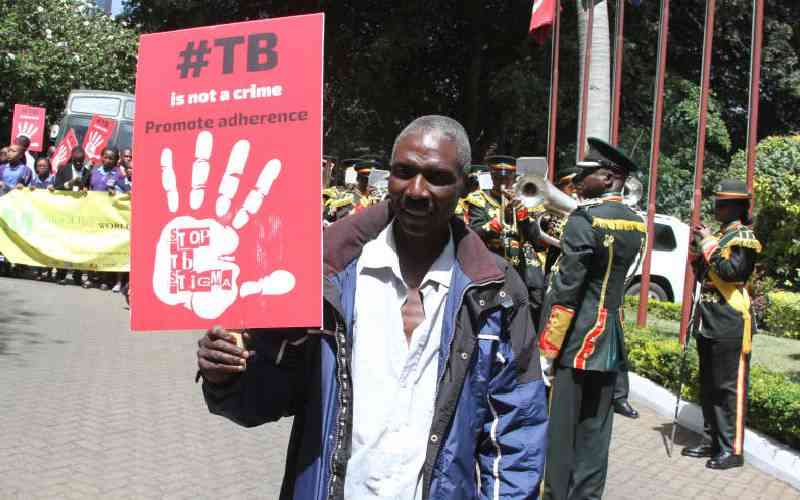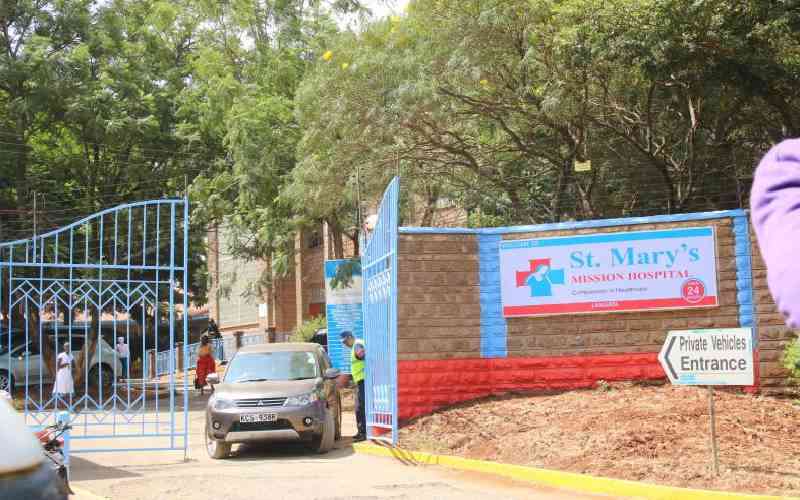
Daniel Ng'etich during the launch of 'Mulika TB-Maliza TB' awareness campaign on World TB Day at Uhuru Park, Nairobi. [File, Standard]
Health officials drawn from Kenya and Tanzania have raised concerns over challenges that hamper cross-border tuberculosis (TB) management.
The health officials said, patient disappearances, family secrecy and administrative red tape were undermining treatment efforts, thus fueling complications that led to death.
John Alila, a clinical officer coordinating TB cross-border activities in Nyatike sub-county, admitted that they were facing challenges tracking patients.
Alila regretted that individuals often seek medical services only to vanish mid-treatment.
"We need a follow-up, but we lose them as they disappear across the border, while some come back with complications and even die," he said.
He said relatives also hide patients to avoid stigma or due to cultural beliefs, thus complicating efforts to locate and monitor them.
The health experts cited cases where some patients use different names when crossing the border, making traceability difficult.
They said restrictive border policies and lack of shared health data systems exacerbate the problem, hence delayed and prevented follow-ups.
The health officials called for innovative modalities to ensure seamless care to help address gaps.
They noted emerging trends in HIV-TB co-infections, where lowered immunity leaves individuals at greater risk, while occupational risks like small-scale mining and tobacco consumption heighten vulnerability.
Oluoch Odoro, who oversees TB and HIV clinics in Kuria East Sub-County linked the challenges to high-risk environments like gold mining.
Odoro who commended authorities in Migori and Tanzania for improving access to medical supplies warned of the dangers posed by mobile populations.
"Treatment defaulting is a critical issue which is often tied to bureaucratic obstacles," the health official said.
Community Health Promoter Joseph Chacha called for streamlined processes to overcome immigration and administrative barriers that deter patients from completing regimens.
The medics proposed recommendations that could help enhance protocols, including joint patient registries and awareness campaigns to tackle stigma and family secrecy.
They were speaking during a cross-border meeting held in Mabera, Migori County that brought together key stakeholders including immigration authorities, local government administrators, health officials, community health promoters, clinicians and doctors from both countries.
 The Standard Group Plc is a multi-media organization with investments in media
platforms spanning newspaper print
operations, television, radio broadcasting, digital and online services. The
Standard Group is recognized as a
leading multi-media house in Kenya with a key influence in matters of national
and international interest.
The Standard Group Plc is a multi-media organization with investments in media
platforms spanning newspaper print
operations, television, radio broadcasting, digital and online services. The
Standard Group is recognized as a
leading multi-media house in Kenya with a key influence in matters of national
and international interest.











